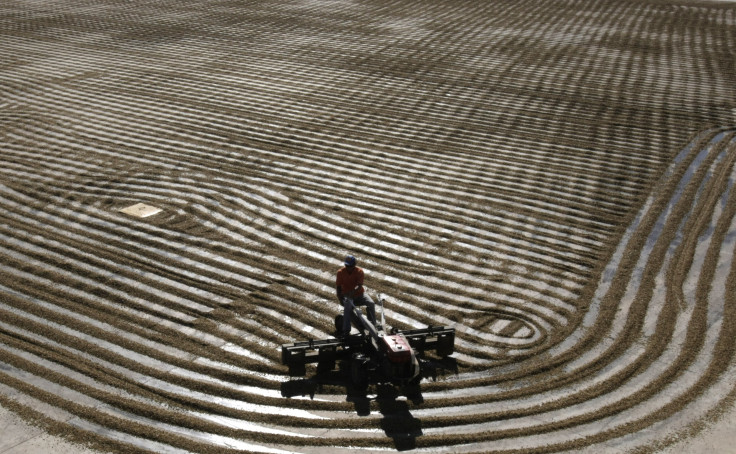Climate Change Effects On Coffee Production: How Hotter Weather Is Killing The Global Arabica Bean Market

The price of global warming can be measured in costs to human health and the environment, but also in cups of coffee, as warming temperatures are stifling coffee production and could send prices soaring over the next few decades. By 2050, yields of Arabica bean – which accounts for 75 percent of the coffee produced worldwide – in some countries are expected to fall by up to 25 percent, according to a report recently published in the journal PLOS One.
“The agricultural sector will face serious challenges in the coming decades due to the sensitivity of crops to water shortages and heat stress,” researchers wrote. Leading coffee-producing countries like Brazil, Colombia, Indonesia and Vietnam can expect their crops to shrink unless steps are taken to minimize the effects of climate change, such as moving their coffee fields to higher altitudes or genetically altering the plants to survive warmer climates.
Climatologists expect global mean temperatures to increase by 2 degrees to 2.5 degrees Celsius by mid-century. A warmer climate is a coffee grower’s greatest enemy as the plants are particularly sensitive to even the slightest variations in temperature and rainfall patterns. “Rising temperatures have already reduced crop quality and increased the pressure of pests and diseases, reducing agricultural production worldwide,” scientists noted.
The livelihoods of an estimated 25 million families worldwide depend on coffee, the world’s most valuable tropical export and the second-most traded commodity next to oil. More than 90 percent of the world’s coffee is grown in developing countries like Burundi and Nicaragua, where the crop is a main source of revenue for cash-strapped governments.
Despite a wide range of flavors and varieties, only two beans – Arabic and Robusta – dominate the commercial coffee industry. Each has adapted to specific climate zones, which means even half a degree temperature rise can significantly impact a crop’s yield. Additionally, pests like the coffee berry borer thrive in warmer environments. Coffee crops in Guatemala, for instance, are becoming increasingly susceptible to fungi and insects.
Another recent study has shown that climate change is already impacting coffee farms in the East African Highlands. For every degree Celsius rise in earth’s temperature, crop yields decrease by between 14 percent and 27 percent per hectare (2.5 acres), according to a new study published in the journal Agricultural and Forest Meteorology.
"Coffee yields have declined to their lowest point in years, with many farmers in Tanzania giving up on coffee completely,” Alessandro Craparo, a PhD candidate from Wits University in Johannesburg, South Africa, and lead author of the study, said in a statement.
The idea that climate change could slash global coffee production isn’t new. Scientists have long known that warmer temperatures are going to impact crop yields, and that as coffee production falls, prices will rise. "The rise in global temperature is of great concern for us in the coffee industry because it will – and has already started – putting the supply of quality coffee at great risk," Tim Schilling, executive director of the World Coffee Research program, based at Texas A&M University, told the Guardian last year. “Over the long term, you will definitely see coffee prices going up as a result of climate change." The price of Arabica coffee soared to its highest level in two-and-a-half years in October 2014.
Coffee isn’t the only commercial crop facing threats from global warming. Across Latin America, hotter, drier summers and cooler cold spells have forced many banana farmers to go to great lengths to keep their fruit alive. Some farmers have abandoned their fields altogether.
© Copyright IBTimes 2024. All rights reserved.






















